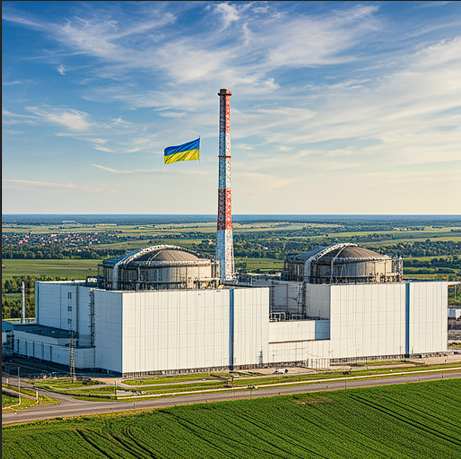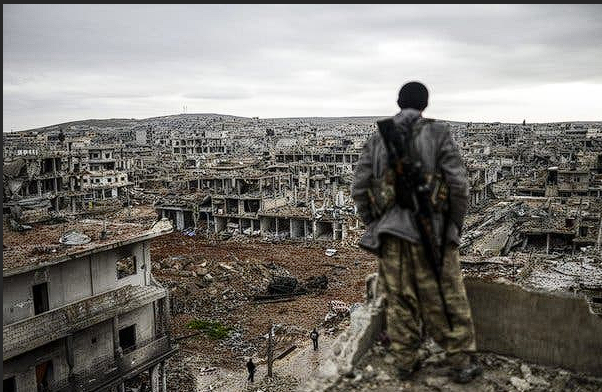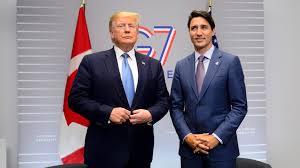As the conflict in Ukraine escalates, the risk of nuclear escalation remains a major concern. In much the same way traders adapt their forex portfolio strategy to shifting market dynamics, Ukraine faces the challenge of adapting its defense posture to counter Russia’s evolving military threats. Russia has indicated that nuclear weapons are not necessary to achieve its objectives against Ukraine, instead showcasing the capabilities of the Oreshnik missile. This intermediate-range ballistic missile is said to possess destructive power comparable to nuclear weapons but without the radioactive fallout.
The Oreshnik’s recent successful strike in Ukraine has put it front and center in discussions about Russian military advancements. Moscow now uses it as a tool of intimidation, further complicating Ukraine’s efforts to defend its sovereignty. Some experts argue, however, that the missile might be little more than a rebranded intercontinental ballistic missile. Regardless of its true power, the missile serves to underscore the need for a more dynamic defense strategy, one that can react swiftly, much like scalping indicators in trading, to threats that evolve rapidly.
A Complex Defense Challenge
For Ukraine, the challenge is not just about defending against specific weapons but about maintaining national security in the face of a heavily armed adversary. The broader dilemma is how to sustain this defense as external support begins to fade.
The U.S. recently approved a $725 million arms package to aid Ukraine, but experts argue this is far from sufficient to match Russia’s advancements. Russian President Vladimir Putin has boasted that the Oreshnik is a weapon “faster than the speed of light,” underscoring Russia’s growing military confidence. These claims, though exaggerated, reveal a key truth: Russia’s technological advancements are increasing, and Ukraine must adapt.
This is where Ukraine’s dependence on foreign aid becomes a critical vulnerability, akin to a trader relying on automated trading signals for decisions in a volatile market. A sudden shift in U.S. foreign policy, especially with the potential return of Donald Trump to the White House, could drastically affect military support. Europe, facing its own economic and political challenges, might struggle to provide the necessary backing. Ukraine, therefore, must reassess its forex market trends to ensure it can withstand any disruptions in foreign assistance.
The Temptation of Nuclear Arms
Given the dire circumstances, some advocate for Ukraine to seek an ultimate deterrent: nuclear weapons. However, this approach comes with immense risks. Russia has warned that any move by Ukraine to acquire or use nuclear weapons would be met with an overwhelming military response.
This threat extends beyond Kyiv. The U.S. has been urged to consider reintroducing nuclear arms to Ukraine as a countermeasure. While proponents of this strategy argue that it could serve as a powerful deterrent, critics believe it would provoke Russia into a catastrophic preemptive strike, potentially turning the conflict into an existential war for both nations.
Rearming Ukraine with nuclear weapons would fundamentally alter the balance of power in the region. A single nuclear warhead in Ukraine would be seen as a direct threat to Russia, forcing Moscow to act decisively to neutralize the risk, with devastating consequences for the entire region.
NATO Membership: A Long-Term Solution?
Ukrainian President Zelenskyy has suggested that NATO membership could provide a long-term solution to the conflict. He proposes that NATO extend membership to regions still under Ukrainian control. However, NATO’s hesitation is understandable; such an invitation would likely escalate tensions and could draw the alliance directly into a war with Russia.
NATO’s decision is fraught with complications, much like the decision-making process in trading entry and exit strategies. Entering into a direct conflict with Russia could have severe consequences, not just for Ukraine but for global security. For now, Zelenskyy’s NATO proposal remains a distant hope rather than a realistic solution.
The Economic and Strategic Shifts Ahead
As the conflict drags on, its economic consequences are becoming increasingly clear. Russia plans to allocate 32.5% of its 2025 national budget to defense, while NATO members are increasing military spending to an average of 28.3% of their budgets. These shifts signal a growing trend of militarization and a strategic move away from economic growth in favor of sustaining long-term conflict efforts.
This trend mirrors shifts in the global forex market trends, where defense spending and resource allocation are increasingly being redirected to military efforts. The economic impact of these decisions will ripple throughout the global economy, changing priorities in sectors like agriculture, energy, and infrastructure.
In such an environment, nations—like traders in a volatile market—must continually reassess their strategies to ensure stability and security. Forex portfolio strategies and international defense strategies alike must evolve to meet new challenges.
The Road Ahead: Escalation or Peace?
The outcome of the conflict in Ukraine will have global implications. As key events unfold, including the U.S. presidential transition and further Russian actions, the world watches closely. Some speculate that the return of Trump to office could bring a swift resolution, while others argue that the complexities of the situation will prolong the war.
A key factor in this evolving crisis is the potential game-changing role of the Oreshnik missile. If this weapon can indeed deliver destruction comparable to nuclear arms without the radioactive fallout, it could trigger an arms race. The U.S. and its allies would likely respond by developing countermeasures or new weapon systems, further escalating global tensions.
As with scalping indicators in trading, nations will need to remain alert and ready to adjust their strategies at a moment’s notice. Ukraine’s future is uncertain, and the choices it makes—whether in terms of military alliances or nuclear armament—will reverberate through the international landscape, potentially reshaping the future of global security.








